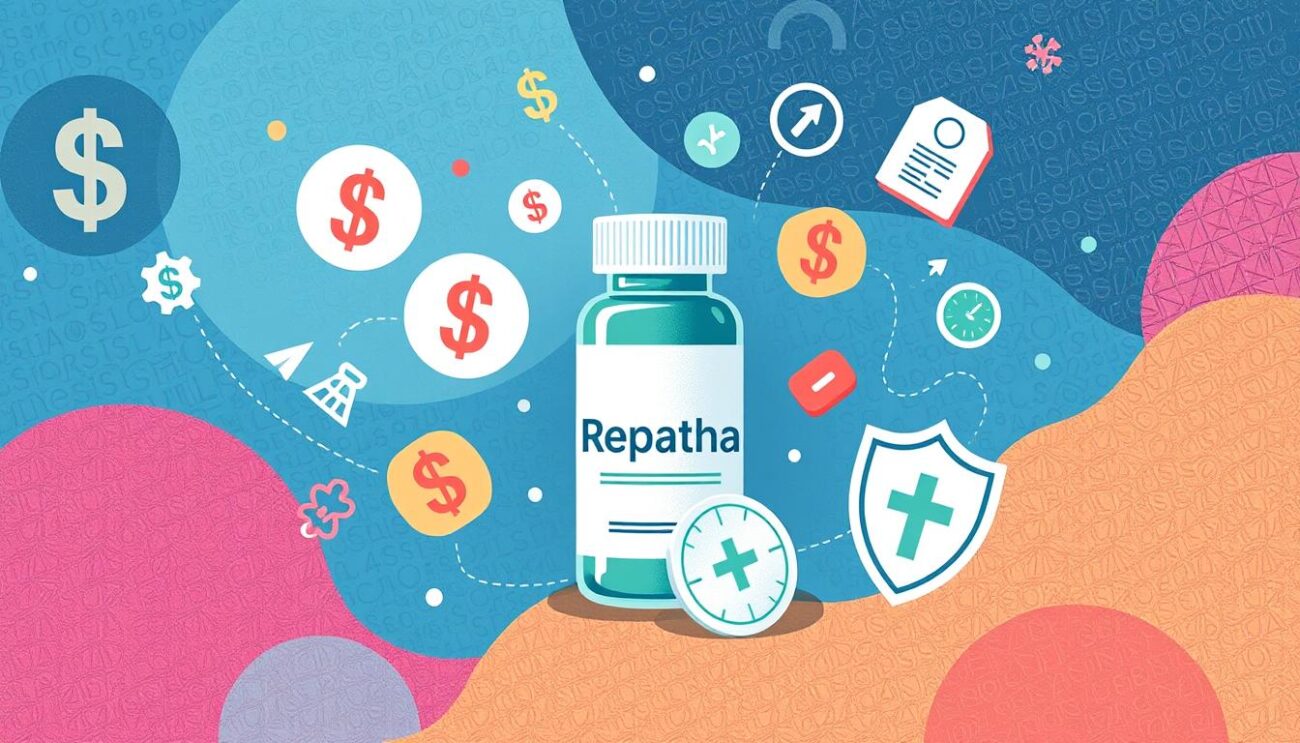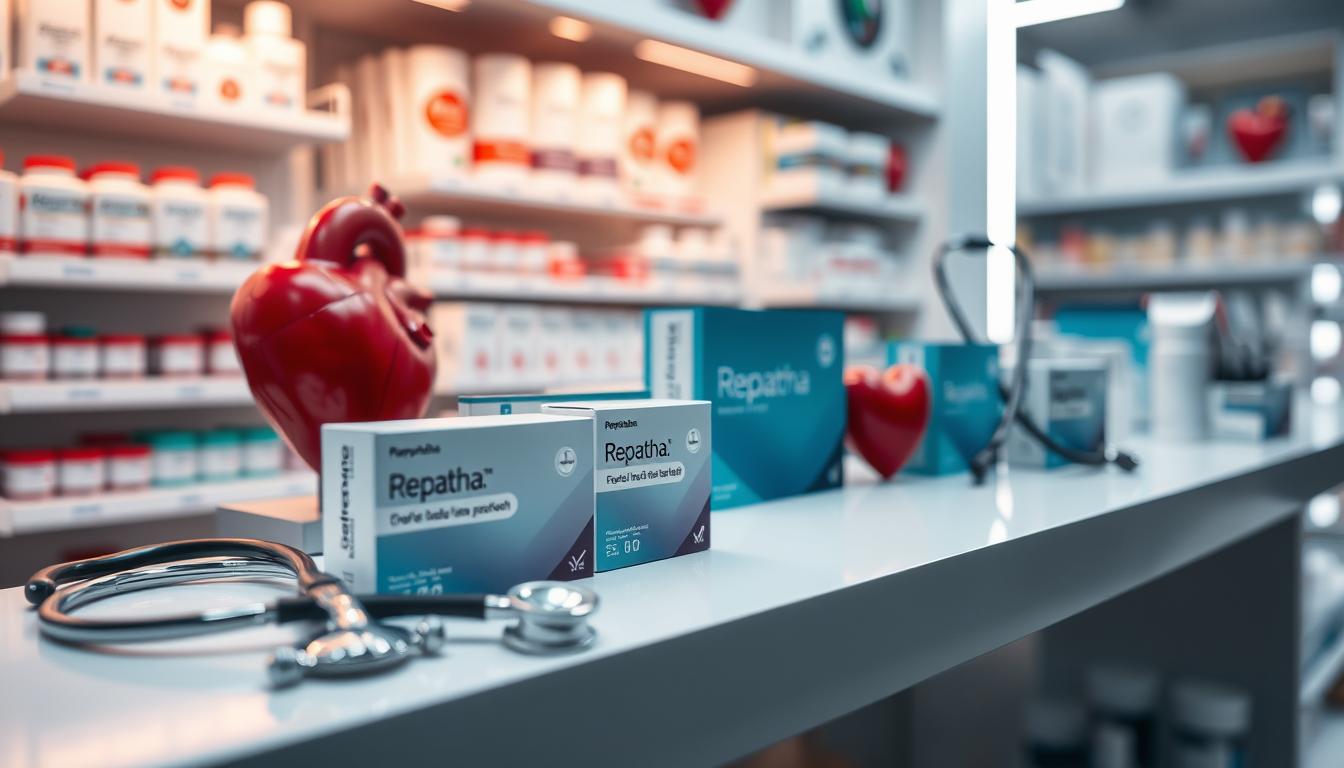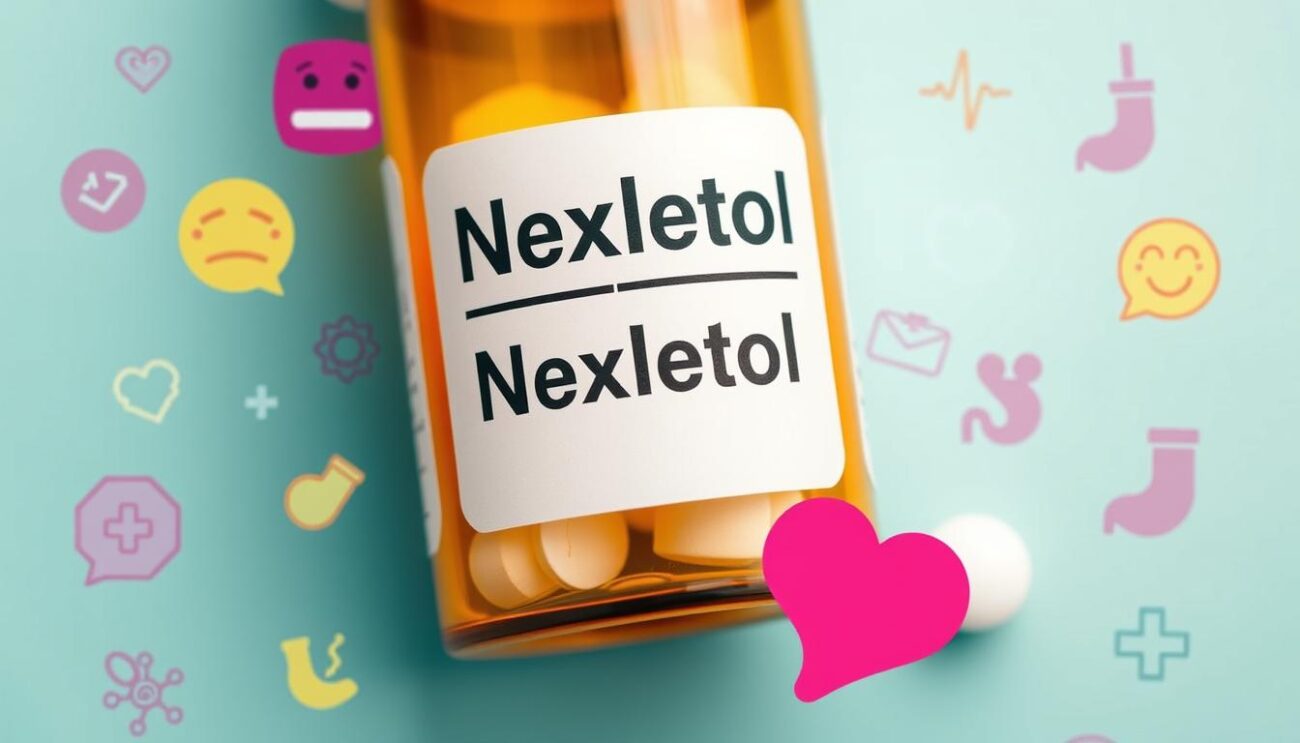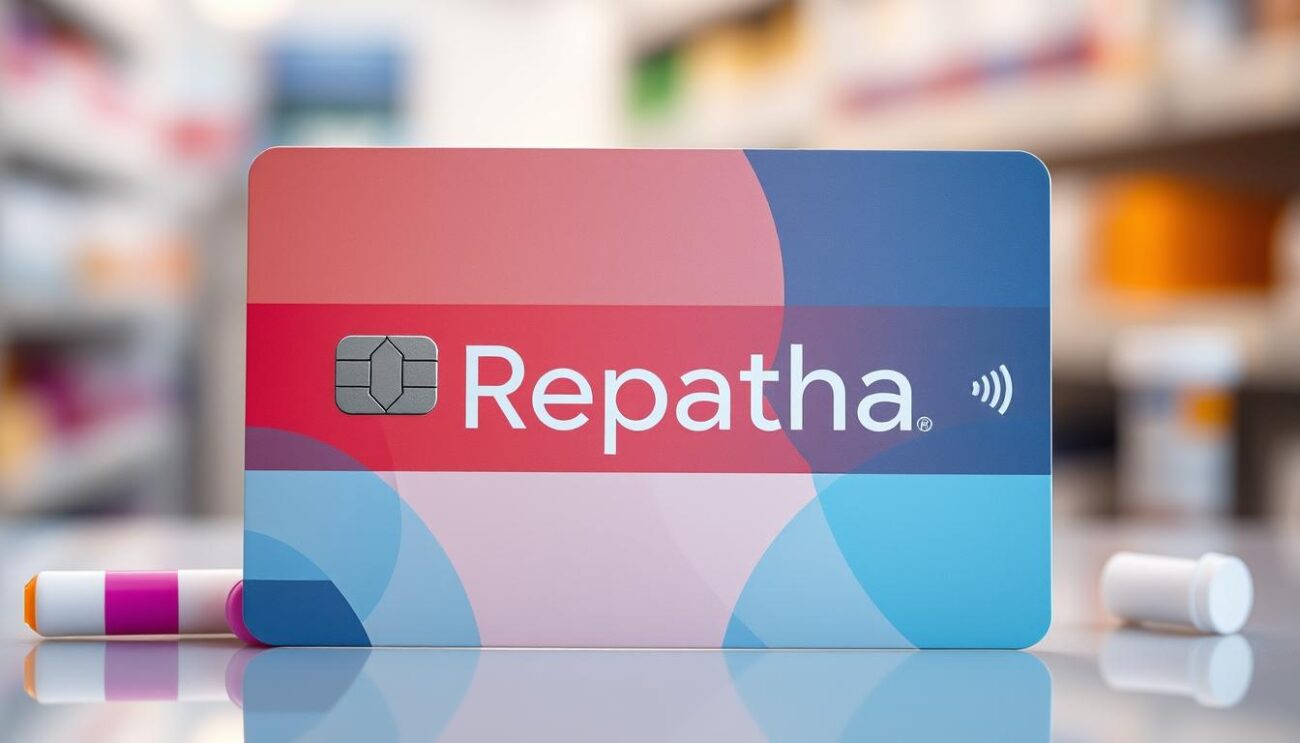Are you finding it hard to pay for your cholesterol medication, Repatha? You’re not alone. The cost for this brand-name drug can be high. But, the price you pay can change based on your insurance and if you qualify for savings programs. In this guide, we’ll look at the Repatha price, find ways to save, and explain the insurance world. This will help you understand your treatment options better.
Key Takeaways
- Repatha’s list price is about $519.82 per month. But, many patients pay much less thanks to insurance and savings programs.
- Almost 72% of Medicare patients pay under $50 a month for Repatha. Most commercial and health exchange plans also cover PCSK9 inhibitors like Repatha.
- Ways to cut Repatha costs include getting a 90-day supply, using a mail-order pharmacy, and looking into patient assistance programs.
- Talking to your healthcare provider, pharmacist, and insurance company is key. They can help you understand your Repatha pricing and coverage.
- Repatha doesn’t have a biosimilar version yet. This could change and lower costs in the future.
What is Repatha?
Repatha is a biologic drug with evolocumab as its active ingredient. It falls under the PCSK9 inhibitors class. These drugs block the PCSK9 protein, which controls LDL cholesterol levels in the blood. Repatha helps lower LDL cholesterol in adults and children.
Active Ingredient: Evolocumab
Evolocumab, found in Repatha, is a monoclonal antibody targeting PCSK9. It’s a biologic drug aimed at lowering cholesterol levels in those at high risk of heart disease.
Drug Class: PCSK9 Inhibitor
Repatha is a PCSK9 inhibitor, a cholesterol-lowering medication. It blocks PCSK9 to reduce LDL cholesterol levels. This is key for heart health and lowering cardiovascular event risks.
“Repatha has been shown to significantly reduce LDL cholesterol levels in both adults and children, making it an important option for patients who need additional cholesterol management support.”
Repatha is a valuable biologic drug for managing high cholesterol. It helps reduce the risk of cardiovascular disease.
Repatha Approved Uses
The U.S. Food and Drug Administration (FDA) has approved Repatha (evolocumab) for several key uses. It is a valuable treatment option for those with high cholesterol and cardiovascular disease.
High Cholesterol in Adults and Children
Repatha is approved for lowering LDL cholesterol levels in adults with primary hyperlipidemia (high cholesterol). It is also approved for children ages 10 to 17 with HeFH. This helps manage their high cholesterol levels.
Cardiovascular Risk Reduction
Repatha is not just for lowering cholesterol. It is also approved to reduce the risk of heart attack, stroke, and certain heart surgeries in adults with established cardiovascular disease. This makes it crucial for managing cardiovascular health.
Homozygous Familial Hypercholesterolemia Treatment
Repatha is approved for treating high cholesterol due to homozygous familial hypercholesterolemia (HoFH) in adults and children ages 13 to 17. This specialized use helps address the unique challenges of this severe form of cholesterol disorder.
Repatha has a wide range of approved uses. It is a comprehensive solution for managing high cholesterol, reducing cardiovascular risk, and treating complex genetic cholesterol disorders. Its versatility in treating both adults and children makes it a key player in healthcare.
Repatha Cost: List Price and Out-of-Pocket Expenses
The cost of Repatha, a cholesterol-lowering drug, has dropped a lot. Amgen, the maker of Repatha, has cut the price by about 60%. Now, the list price is $5,850 a year, down from over $14,000 before.
This change is in line with the White House’s push for cheaper drugs and more openness.
The real cost for patients can change a lot, based on their insurance and if they qualify for savings. For Medicare users, the monthly cost used to be between $280 and $370. Now, it’s $25 to $150 a month, making it easier for more people to get.
Even with the price drop, Repatha’s sales haven’t hit the mark since the FOURIER trial in 2017. The high cost without insurance has led to many Medicare patients stopping their PCSK9 inhibitor treatment.
Amgen wants to work with health plans and pharmacy managers to get Repatha’s price down sooner. This could help more patients get the drug and stick with it, helping those with high repatha out-of-pocket cost.
“The new pricing strategy aligns with calls for lower drug prices and greater transparency from the White House.”
Regeneron Pharmaceuticals and Sanofi also cut the price of Praluent, another PCSK9 inhibitor, to help patients. This move by Amgen and others is a step in the right direction. It makes sure patients can get the care they need without breaking the bank.
Insurance Coverage for Repatha
Understanding insurance coverage for Repatha is key. The good news is that Repatha is covered by many plans. About 85% of people only need to sign a form to get it.
Commercial Insurance Plans
For those with commercial insurance plans, getting Repatha is fast. About 40% get approval in just 5 minutes. And 80% get it within 24 hours.
Medicare Part D Coverage
For medicare part d repatha coverage, most patients pay under $50 a month. The cost depends on the Medicare plan and the patient’s benefit phase.
| Insurance Coverage | Repatha Cost |
|---|---|
| Commercial Insurance | Rapid prior authorization, with 40% receiving approval within 5 minutes and 80% within 24 hours |
| Medicare Part D | 72% of patients pay less than $50 per month |
Dealing with repatha insurance coverage can be tough. But knowing your options, from commercial insurance plans for repatha to Medicare Part D, makes it easier to get this important medication.

Repatha Price with Insurance
The cost of Repatha, a PCSK9 inhibitor, can change a lot based on your insurance. Eligible patients with commercial insurance might only pay $5 a month with a co-pay card. This makes it easier for those with commercial insurance to afford.
For Medicare Part D users, 72% pay less than $50 a month. Costs can vary based on your Medicare plan and coverage phase. Before, Repatha cost $280 to $370 a month. Amgen now offers it for $5,850 a year in the U.S.
Most commercial and health exchange lives (85%) need only an attestation for PCSK9 inhibitor coverage. This makes getting Repatha easier and cheaper for those with commercial insurance.
“At Repatha’s current price, it costs $2.4 million to prevent a single heart attack and $7.5 million to prevent a stroke, which are considered incredibly high costs.”
Even though Repatha is still expensive, help like co-pay assistance and lower prices make it more affordable. This is true for both commercial insurance and Medicare users.
Repatha Co-Pay Card for Commercial Insurance
Patients with commercial or private insurance can use the Repatha copay card to lower costs. This card can reduce what you pay for copays, coinsurance, and deductibles. Eligible patients might only pay $5 a month for Repatha.
Eligibility and Terms
The Repatha copay card is for those with commercial insurance. You must meet certain requirements and follow program limits. You can sign up online or by calling Amgen’s Nurse Partner line. But, it’s not for those on Medicare, Medicaid, or VA benefits.
After signing up, the card covers costs up to the program’s limits. You might pay the first $5, and Amgen will cover the rest. This helps make Repatha more affordable.
Keep in mind, the card’s benefits and eligibility can change based on your insurance. Talk to your healthcare provider and Amgen Access Specialists. They can help you understand the program better.
“Patients with commercial insurance can pay as little as $5 per month with the Repatha Co-Pay Card.”
Using the Repatha copay card can help lower costs for commercially insured patients. It makes it easier to get this important medication. It’s a big help for those struggling to afford Repatha.
repatha price Assistance Programs
Patients facing financial challenges can find help with Repatha medication. The Amgen Safety Net Foundation is a key resource. It’s provided by Amgen, the maker of Repatha.
The Amgen Safety Net Foundation helps those who are uninsured or underinsured. It’s for those who can’t afford their Repatha prescription. Patients can visit the program’s website or call 800-932-3060 to learn more.
Eligible patients may get Repatha for free through this program. This helps reduce the cost of this important medication. The program aims to make Repatha accessible to all, no matter their financial situation.
There are also other repatha financial assistance programs available. These include co-pay cards and patient assistance initiatives. By looking into these options, patients can get the help they need to keep their treatment going.
The existence of repatha patient assistance programs shows a commitment to making this medication more accessible. Patients are encouraged to explore these resources. They may find financial help that can support their health goals.
Ways to Save on Repatha
Patients looking to cut down on Repatha (evolocumab) costs have a few options. Getting a 90-day supply can reduce pharmacy visits and expenses.
90-Day Supply Options
Healthcare providers and pharmacies might offer a 90-day Repatha supply. This can lower copays or out-of-pocket costs for monthly refills. It’s a convenient and cost-saving option for eligible patients.
Mail-Order Pharmacies
Patients can also try mail-order pharmacies for Repatha. This avoids the need for in-person pharmacy visits. Some Medicare plans cover mail-order meds, making it cheaper for patients.




